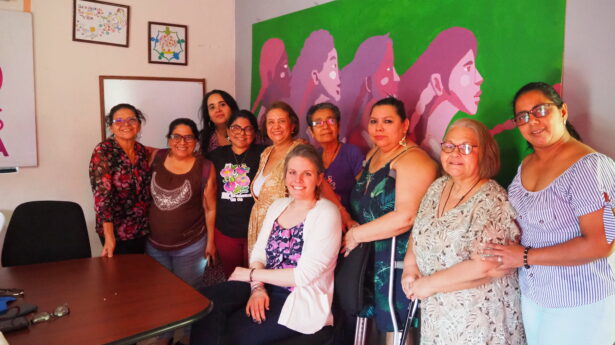The Unitarian Universalist Service Committee advances human rights through grassroots collaborations.
Partner Profile: Northwest Arkansas Workers’ Justice Center

April 5, 2016
They’ve restored thousands of dollars in back wages that were stolen from workers. They train workers on what their rights are and how they can defend them. And they spend each and every day vigorously advancing the human rights of workers in their communities. These are just some of the many reasons we love the people that make up the Northwest Arkansas Workers’ Justice Center (NWAWJC), a UUSC partner of approximately 10 years.
Founded in 2002, NWAWJC improves working conditions for low-wage workers in northwest Arkansas through advocacy, organizing, and education. Philip Hamilton, UUSC’s associate for economic justice, says, “I am inspired by NWAWJC’s tireless commitment to raising up the issues facing their members to new, ever larger audiences in order to ensure that workers’ rights in northwest Arkansas become a reality.” UUSC partners with NWAWJC to empower workers — especially those in the poultry industry, which too often endangers and exploits people of color and women — and raise awareness of the rights violations that they face.
Based in Springdale and Fayetteville, NWAWJC has a wide range of programs that focus on wage theft, discrimination, sexual harassment, health and safety, and workers’ compensation violations. As the only workers’ center in all of Arkansas, Kansas, Missouri, and Oklahoma, NWAWJC offers vital support for local workers, offering the following and more:
- Labor rights trainings
- Immigrant justice organizing
- Free English classes, GED tutoring, and computer courses
- Worker leadership development and campaigns
Most recently, UUSC supported NWAWJC in producing Wages and Working Conditions in Arkansas Poultry Plants, an eye-opening report that reveals the challenges poultry workers face. “This report is one of the most detailed and comprehensive looks at life inside poultry plants in recent years,” explains Amber Moulton, UUSC’s researcher. “It reveals serious problems, from unpaid wages to gender and racial discrimination and health and hygiene lapses that harm both workers and consumers. This hard evidence should spur policymakers and poultry companies to action to protect the rights and dignity of the people who put chicken, Americans’ favorite meat, on our tables.” NWAWJC surveyed more than 500 workers for the report and has released a series of videos featuring the voices and experiences of those workers.
NWAWJC works in an area where the employment landscape is dominated by Walmart, Tyson, and several poultry plants. It serves communities that have significant populations of Marshallese and Latino immigrants (many of whom are made especially vulnerable to labor abuse by their undocumented status), and all of the workers it assists live below the federal poverty line. All the more reason to heartily celebrate a few of NWAWJC’s accomplishments:
- Recovered over $920,000 in back wages, workers’ compensation, safety and health, and discrimination claims through worker advocacy
- Educated workers on lobbying to block anti-immigrant legislation proposed in Arkansas
- Trained more than 350 workers about their safety and health rights according to the Occupational Safety and Health Administration
- Presented and helped pass a resolution in support of increasing the Department of Labor statute from $1,000 to $2,000 when investigating cases of wage theft
- Assisted in over 400 cases of workplace abuse
- Assisted 800 workers in a Bentonville poultry processing plant to get their employer to provide safety equipment
- Graduated more than 50 worker members from their computer literacy classes
- Provided more than 70 worker members the opportunity to to advance their English literacy skills
Want join UUSC and NWAWJC in defending the rights of poultry workers? Learn more from the recent report and start talking to your friends, family, legislators — and the poultry companies!

